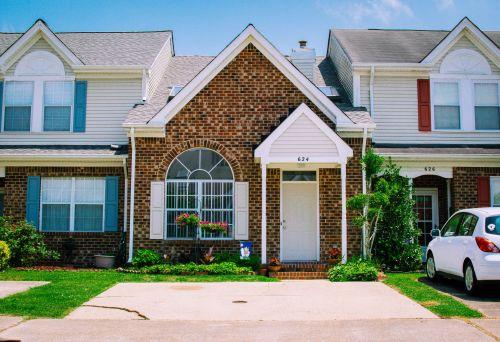Once you've listed your home for sale, you'll likely start receiving offers from potential buyers. But here's something to consider; these offers may come with conditions that could impact your selling strategy.
While an offer to purchase may include conditional clauses that could potentially slow down the sale process or give the buyer the option to back out if conditions aren't met, it's essential to recognize that the buyer still maintains responsibilities and commitments to you as the seller.
What is a conditional offer to purchase?
An offer to purchase is a formal agreement in which a buyer commits to buying a property from the seller if the seller accepts the proposal. Typically, this document outlines specifics like the purchase price and the deadline by which the offer must be accepted. If conditions are included in the offer, they need to be met by either the buyer or the seller before the transaction can be concluded.
If no conditions are specified and the seller accepts the offer, the promise to purchase becomes legally binding, allowing the sale to move forward. However, if conditions are present, the buyer's obligation to sign the deed of sale is put on hold until these conditions are met. However, once the conditions are fulfilled, the buyer must proceed with the purchase according to the agreed terms.
3 conditions that are often included in the offer to purchase

1. Inspection contingency
One frequent condition found in a purchase agreement revolves around property inspections. This condition stipulates that the buyer's offer is contingent upon conducting a pre-purchase inspection to assess the condition of the property being sold.
The buyer then typically hires a home inspector to evaluate the property’s condition. If the inspection reveals no major issues, the condition is considered met, and the sale process can go forward.
If the inspector uncovers significant defects, the buyer might choose to adjust their offer by asking for a price reduction or even withdraw their offer entirely.
Undoubtedly, the inspection phase is a crucial aspect of any real estate transaction and should never be underestimated. Learn why you should never skip a presale inspection in our article 3 reasons to always do pre-purchase inspection.
2. Financing contingency
Another significant clause that can be included in a purchase offer is the financing contingency. When the buyer includes this condition, they must demonstrate their ability to obtain the necessary funds to buy the property before officially purchasing it. This often entails obtaining proof of financing from their lender.
Does the buyer possess a mortgage pre-approval? Although securing mortgage pre-approval is an excellent initiative to understand one's borrowing capacity, it is not sufficient at this stage of the sale.
The buyer will need to obtain an official mortgage commitment from a financial institution, specifying the amount of funds being provided to purchase the property. In the absence of this financing proof, either due to rejection or the exceeding of the agreed-upon deadlines, the promise to purchase might be rendered null and void.

The risks of waiving this condition as a buyer
Excluding or having this condition denied could result in severe financial repercussion for the buyer. If the lender declines financing, finalizing the purchase contract becomes impossible. As a result, not only would the buyer be unable to afford the desired property, but he might also face potential legal action from the seller.
If the financial institution agrees to provide financing but offers a lower amount than expected, the buyer will be responsible for covering the price difference. This situation commonly occurs when the property's valuation is lower than the offer. In such cases, the lender may provide financing based on their appraisal rather than the proposed purchase price.
3. Sale contingency
Unless the individual placing the offer is a first-time buyer, they likely have their own property to sell before they can purchase a new one. In such cases, they can submit a conditional offer dependent on the sale of their current residence.
Both parties must agree on a reasonable amount of time for the buyer to finalize the sale of their home and fulfill this condition. Failure to do so within the agreed-upon time may result in the cancellation of the purchase offer.
Typically, a timeframe of 60 to 90 days is established for completing this condition.

What are other examples of conditions ?
The three conditions mentioned above are just a few examples of what can be included in a purchase offer. Apart from these, a buyer might also choose to make their offer contingent upon an analysis of the backfill material to identify any presence of pyrite or other hazardous substances.
In scenarios involving co-ownership, the buyer might also add a condition regarding the examination of the financial statements of the co-ownership corporation.
While it's not yet widespread, including a review of the documents and financial statements of the syndicate as a condition in a purchase is a wise initiative. Reviewing these documents allows insight into whether the syndicate is effectively managing the building's finances. Well-maintained finances offer reassurance to the new buyer, while poorly managed finances could signal potential issues.
How long should the conditions last?
Regardless of the nature of the condition, it is crucial that it comes with a specified deadline for completion.
Otherwise, according to Article 1501 of the Civil Code of Québec, a condition lacking a defined timeframe for fulfillment can be fulfilled indefinitely unless it's evident that it cannot be met.
Thus, it is important for both the seller and the buyer that any mentioned conditions are accompanied by a reasonable timeframe. This helps prevent potential buyers from finding themselves in situations beyond their control and prevents sellers from experiencing prolonged delays in their sale process.

The 72-hour clause
When a buyer submits a conditional offer to purchase, the seller has the option to accept and still seek another buyer. If a higher offer is received, the initial buyer is given a 72-hour window to respond and inform the seller of their decision.
During this time, the buyer may:
-
Waive the condition of sale of the property, providing evidence that they have the necessary financing to proceed with the purchase.
-
Cancel the offer to purchase.
If the buyer fails to communicate their decision within the 72-hour timeframe, their offer to purchase will be considered null and void.
Can a buyer cancel an accepted offer to purchase?
Once a conditional offer to purchase is in place, the buyer cannot deliberately prevent the fulfillment of the condition to seek release from the contract. Even if done without ill intent, if the buyer prevents the condition from being fulfilled, they forfeit their right to rely on it. In such a scenario, the contract would be validated as if the condition had been met.
If, for instance, a buyer makes an offer conditional on the sale of their home but then withdraws it from the market or rejects all received offers, the law will enforce the purchase agreement. The buyer is then obligated to buy the property from the seller as agreed or compensate the seller for breaching the contract.
A conditional offer to purchase establishes a legal obligation between the buyer and the seller. Both parties are required to fulfill their responsibilities and make sincere efforts to bring the transaction to a successful completion.
Are you looking to buy or sell a property?
XpertSource.com can help you find a real estate broker. When you tell us about your project, we put you in touch with qualified resources for free. Simply fill out our form (it only takes a few minutes) and we will connect you with professionals.

